
Is it possible to have a psychedelic experience on cannabis?
Cannabis can sometimes cause very intense highs, and these might feel trippy or even conjure up experiences that might feel like (or may even be) hallucinations. But can it cause a true psychedelic experience?
Cannabis is an interesting drug that cannot be placed into one sole category. With some effects that resemble hallucinogens, others depressants, and some that even bear similarity to stimulants, it really is unique.
Given this range of effects, it seems fair to ask whether cannabis can cause psychedelic effects. Here, we’re looking at the effects of cannabis and asking whether it can truly be considered psychedelic.
The science behind THC and psychedelic-like effects
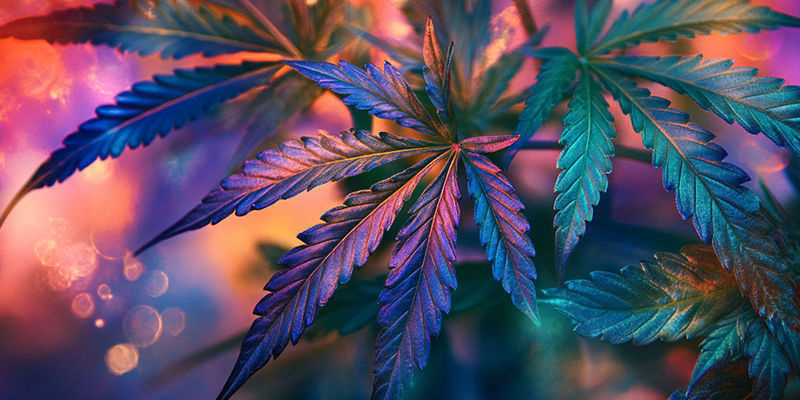
THC interacts with the body via the endocannabinoid system. Most importantly, it mimics the naturally occurring endocannabinoid anandamide and binds to the brain’s CB1 receptors. In doing so, it acts like an extremely strong version of anandamide, and one that the body struggles to break down. As such, it has potent and long-lasting effects.
It is via this mechanism of action that THC exerts most of its effects, and why it is sometimes able to cause psychedelic-like effects. Perhaps equally important, but currently less understood, may be the influence of other cannabinoids and compounds found in cannabis (such as terpenes), and the impact they have on the entourage effect.
The entourage effect is the name given to the combined effect of all the different compounds in cannabis working in unison, and is unique to each phenotype. This is why different strains exert different effects.
But, however trippy the subjective effects of cannabis might be, they are not psychedelic effects. Classic psychedelic drugs are a specific class of drugs that have an affinity for the brain's serotonin 5-HT2a receptors—not the CB1 receptors. Given this distinction, and what it means for how the drugs affect us, cannabis shouldn’t be considered truly psychedelic.
Factors that can influence cannabis’ psychoactive intensity
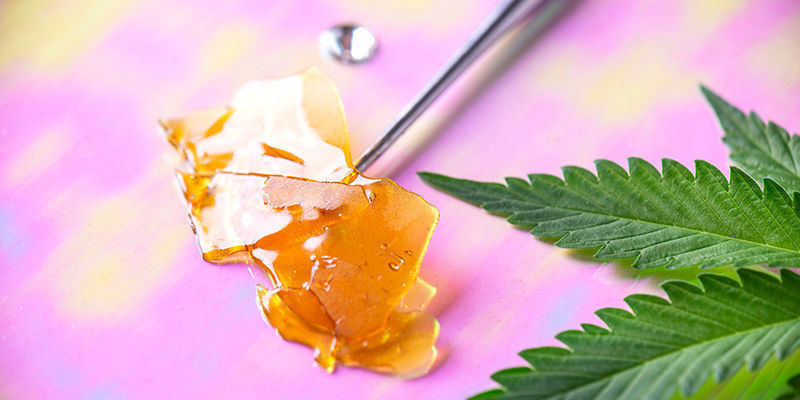
There are many factors that come together to determine how intense the effects of consuming cannabis will be.
The main one is the amount of THC consumed, or dose. All other things being equal, if you consume more THC, you will get more high. So dose should be considered the pivotal factor in understanding the intensity of a high.
However, the consumption method is also important. Edibles, for instance, are stronger and longer lasting than inhaled cannabis because delta-9-tetrahydrocannabinol (“normal” THC) is converted into 11-hydroxy-delta-9-tetrahydrocannabinol. This latter compound is what becomes of THC when it is metabolised in the liver, and it is generally thought to be stronger and trippier.
Certain forms of vaping, such as dabbing, tend to be stronger too. But this comes down to dose, as they can contain up to 80 or even 90% THC, making them extremely strong methods of consumption.
Though usually mentioned in relation to psychedelics, set and setting are important when considering the effects of cannabis, or indeed any drug. The environment in which you take it and the corresponding mental state will both influence the high, sometimes in very significant ways.
Comparing cannabis to traditional psychedelics
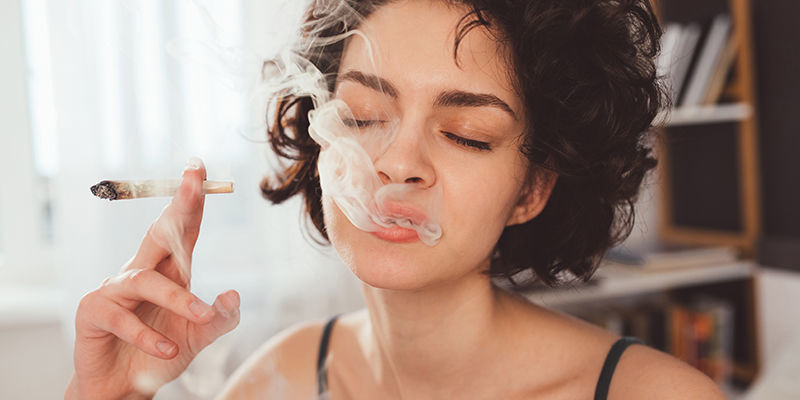
As already mentioned, cannabis differs from classic psychedelics in that it has an affinity primarily for the brain's cannabinoid receptors, not the serotonin receptors. But what does this mean in practice?
For the person using these drugs, it means significantly different effects—both in the short and long term. While both enhance sensory perception and influence the inner workings of the mind, they do so in quite different ways. Where cannabis muddles or accelerates the mind, psychedelics make it feel much more elastic and flexible.
Cannabis doesn’t tend to come with the profound emotional insight of psychedelics either, and when it does, it can often take the form of anxiety and paranoia.
Contrary to popular belief, cannabis is actually more likely to cause hallucinations than psychedelics. True hallucinations are not understood by the person experiencing them to be in the mind, whereas the visual and auditory effects of psychedelics are. Ever heard your name being shouted when stoned, or heard something else that turned out not to be there? These are true hallucinations, and aren’t usually desirable.
It’s hard to compare two drugs, as describing states of being is extremely difficult. But it could also be said that cannabis makes you feel heavy, whereas psychedelics make you feel light.
Will cannabis make you hallucinate?

Cannabis might make you hallucinate, but it won’t really make you trip. Often people use the term hallucination when really they’re referring to tripping, which is a different experience. So, below we’re looking at different ways of consuming cannabis and exploring how trippy they really are.
Edibles
If you’ve taken edibles before, you've probably noticed that the effects are significantly different to smoking cannabis. As mentioned, this is because THC is metabolised by the liver and becomes 11-hydroxy-THC. This compound crosses the blood–brain barrier more readily than THC, and has a greater affinity for the CB1 receptor, meaning longer-lasting and more powerful effects.
Therefore, edibles are one of the more trippy ways to ingest cannabis. That being said, you are likely to be incredibly lethargic by the time any reality-changing effects take hold, and so you may not be able to appreciate them very much.
Cannabis concentrates
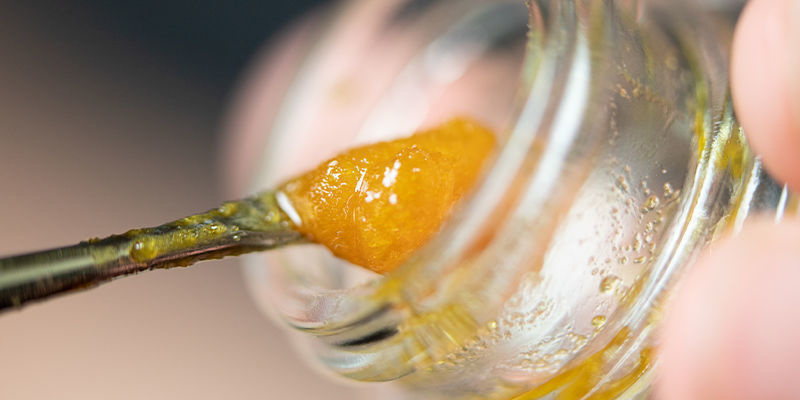
Concentrates are, well, concentrated. This means that, gram for gram, you’ve got a whole load more cannabinoids compared to raw flower. Concentrates are made by extracting the resin from the trichomes found on the surface of the cannabis flowers—it is in these trichomes that the cannabinoids and terpenes are located.
Therefore, taking hits of cannabis concentrates can get you much higher than smoking regular pot. Many report the effects to be sort of “cleaner” too. Simply due to the bigger hit of THC, you’re going to get higher, and this may well feel trippier to boot.
Synthetic cannabis
Synthetic cannabis is a single name given to myriad substances, most famously “spice”. Even describing these as “cannabis” is clutching at straws, as anyone who has smoked them will know that they feel nothing like typical marijuana.
Yes, they can make you hallucinate. But no, it is not pleasant. Expect strange sensations, physical pain, anxiety, paranoia, and something like psychosis. These drugs are deeply unpleasant and incredibly dangerous. Stay away!
Smoking cannabis
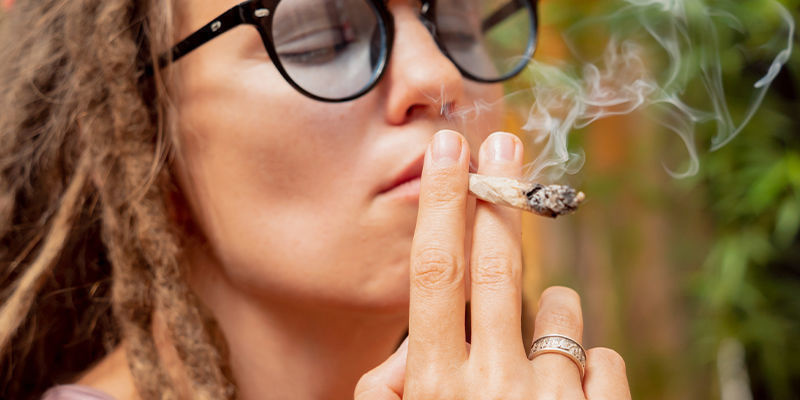
Smoking is the most common way to enjoy weed, and probably the easiest (at least where it’s not commercially available). When smoked, marijuana takes effect very fast, and wears off relatively quickly too. But there are different ways of smoking, and this makes a notable difference in the outcome.
Joints and spliffs
Joints and spliffs are probably among the mildest (and often most pleasant) ways to smoke cannabis. With a joint in hand, it's easy to control the dose, as the high increases gradually. Especially if smoked with tobacco, it can be hard to really overdo it with this method. That’s not to say you won’t—only that you’re likely to see it coming. As such, joints and spliffs are rarely described as hallucinogenic or psychedelic.
Bongs and bowls
Smoking pot in bongs and bowls, on the other hand, is a surefire way to get incredibly high, incredibly quickly. Ranging from a wholesome little pipe to a legendary gravity bong, there’s a lot of range with these methods. However, if you want to get very high from THC, this is an easy way to do it.
Due to the nature of the high caused by these methods, though, you might find yourself past the “trippy” point and just spinning out or falling asleep if you’re not careful!
Cannabis strains known for intense effects
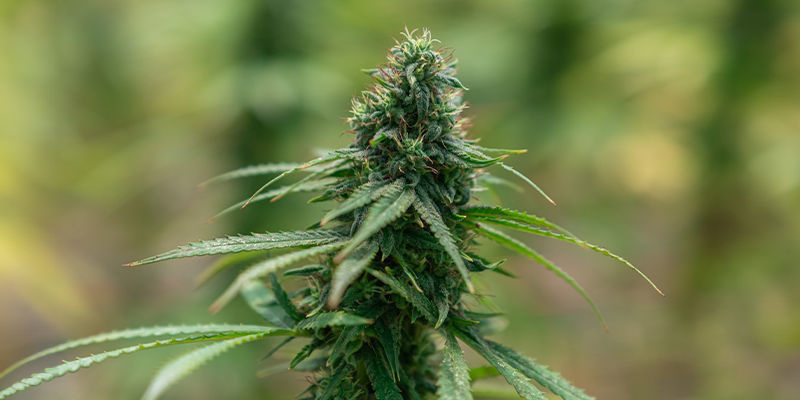
There are countless cannabis strains that contain large amounts of THC and induce intense effects. So while this list is by no means exhaustive, here are some notable ones:
Does CBD cause hallucinations?
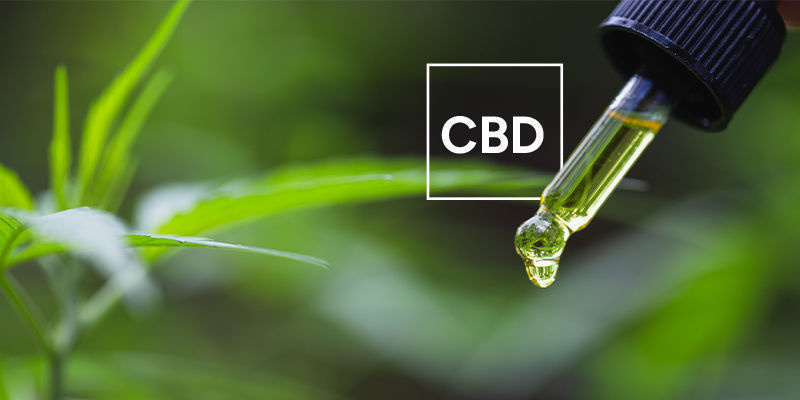
No, CBD is non-psychotropic. This means it does not have narcotic qualities. Even though you may feel different on it, it is not in the same way you would after taking THC. Taking CBD should not really alter reality at all, let alone cause hallucinogenic effects.
Risks and safety considerations
There are risks associated with smoking cannabis, especially if you’re trying to get incredibly high. In short, if you really want to trip, take a psychedelic!
The most dangerous negative effect of cannabis is cannabis-induced psychosis, whether it be transient or longer lasting. Though rare, this is a very real concern and is most associated with strains of cannabis that contain high levels of THC and low levels of CBD. If you begin feeling paranoid, anxious, or distrustful, stop smoking weed—it’s not worth it!
Generally, even if you’re comfortable with cannabis, you should know your limits and be comfortable without it. Take it easy and, when it gets overwhelming, stop, take a walk, drink some water, and put a cartoon on.
Can cannabis truly be psychedelic?
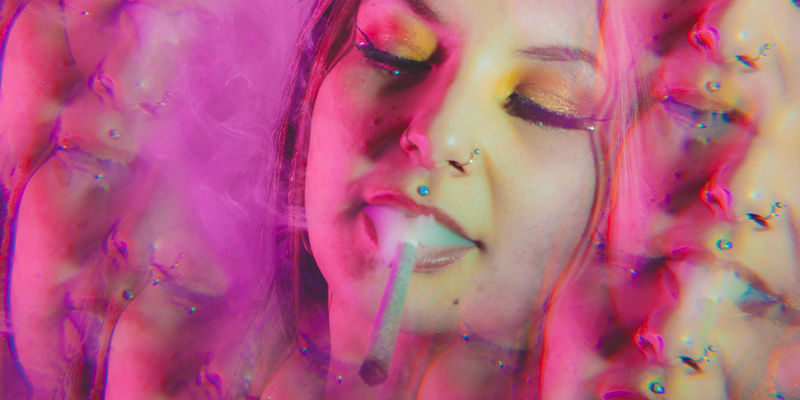
In short, no. However, cannabis is nevertheless a potent psychoactive drug in its own right and has a whole host of effects that are unique and worthy. If you want a psychedelic experience, take some shrooms or truffles; if you want to get stoned, try some weed! We shouldn't underestimate the strength and potential effects of cannabis—they can seriously bend reality, but they are not the same effects as those offered by traditional psychedelics.
Whatever you’re looking for, be careful and use drugs responsibly. It's all about finding your own comfortable limit—it's certainly not about trying to get as high as possible!
Cannabis and hallucinations FAQ
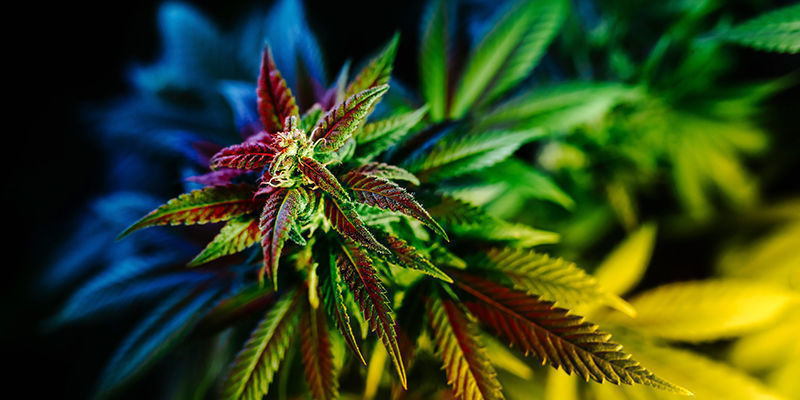
- Can cannabis cause hallucinations?
- Unless cannabis induces psychosis, it should not cause hallucinations.
- How does THC alter sensory perception?
- THC can enhance sensory awareness and make stimuli more immediate.
- Which cannabis strains are most likely to produce intense effects?
- Cannabis strains with very high levels of THC and low levels of CBD are most likely to cause intense effects.
- Are edibles more likely to cause psychedelic experiences?
- While edibles won't cause true psychedelic experiences, they are more likely to induce "trippier" experiences due to their increased potency.
- How does cannabis compare to LSD or psilocybin?
- Cannabis does not change a person's perception of the world as significantly as LSD or psilocybin, though it should not be underestimated!
- Bagot KS, Milin R, & Kaminer Y. (2015). Bagot K, Milin R, Kaminer Y. Adolescent Initiation of Cannabis Use and Early-Onset Psychosis. Subst Abus. 2015;36(4):524-533. doi:10.1080/08897077.2014.995332 - https://pubmed.ncbi.nlm.nih.gov
- Frederick S. Barrett, Nicolas J. Schlienz, Natalie Lembeck, Muhammad Waqas, & Ryan Vandrey. (2018). Barrett F, Schlienz N, Lembeck N, Waqas M, Vandrey R. “Hallucinations” Following Acute Cannabis Dosing: A Case Report and Comparison to Other Hallucinogenic Drugs. Cannabis Cannabinoid Res. 2018;3(1):85-93. doi:10.1089/can.2017.0052 - https://www.ncbi.nlm.nih.gov
-
 6 min
18 June 2021
The Six Types Of Hallucinations You Can Experience
We all know that psychedelic drugs can cause hallucinations, but what about the other causes? Mental illness, sleep deprivation, and even certain foods can trigger hallucinations as well. Ranging...
6 min
18 June 2021
The Six Types Of Hallucinations You Can Experience
We all know that psychedelic drugs can cause hallucinations, but what about the other causes? Mental illness, sleep deprivation, and even certain foods can trigger hallucinations as well. Ranging...
-
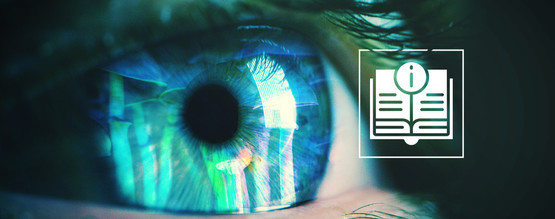 6 min
12 January 2020
A Definitive Guide To The Cognitive Effects Of Psychedelics
Many people know that psychedelics can influence how we think and feel. Below, we break down the different cognitive effects of psychedelics, and explore various enhancements and suppressions in...
6 min
12 January 2020
A Definitive Guide To The Cognitive Effects Of Psychedelics
Many people know that psychedelics can influence how we think and feel. Below, we break down the different cognitive effects of psychedelics, and explore various enhancements and suppressions in...
-
 5 min
12 June 2017
Foods That Can Make You Hallucinate
Food can cause all sorts of feelings and emotions. Despite of making us feel happy when it fills our bellies, there are foods that can excite us or make us tired, cause weird dreams, and even other...
5 min
12 June 2017
Foods That Can Make You Hallucinate
Food can cause all sorts of feelings and emotions. Despite of making us feel happy when it fills our bellies, there are foods that can excite us or make us tired, cause weird dreams, and even other...





 United States
United States











